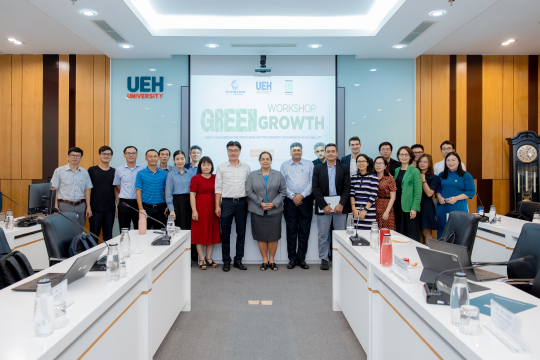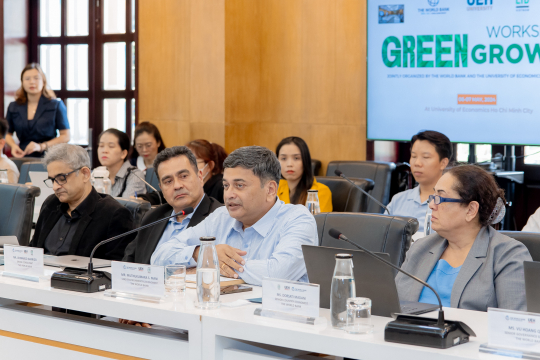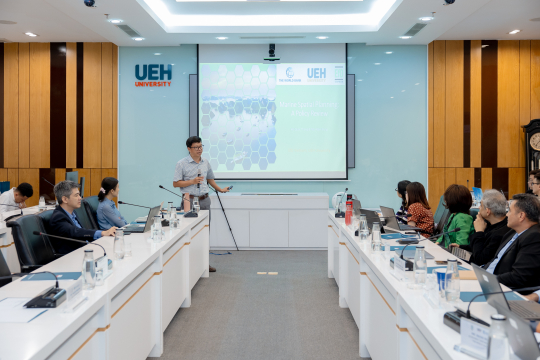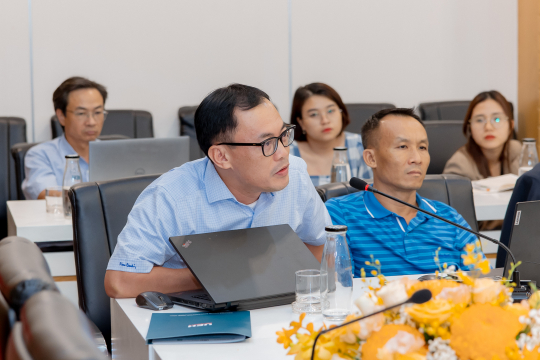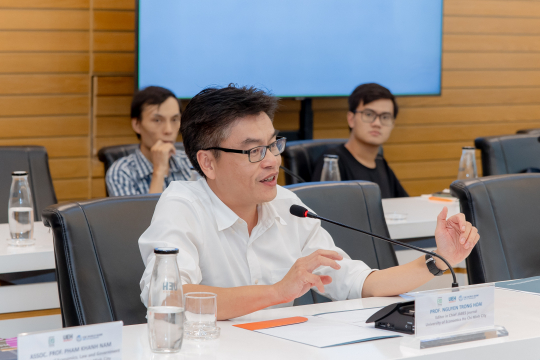What price has the environment paid for the economic growth of Vietnam? And what is the road forward? Those were issues discussed in the Green Growth Workshop in Ho Chi Minh City, co-hosted by EfD Vietnam, the World Bank, and UEH University. It was attended by over 50 participants in person and online. The workshop aimed to promote sustainable and climate-smart economic growth in Vietnam by sharing insights and driving collaboration.
The two-day workshop included in-depth discussions on key topics. The World Bank presented preliminary findings from its ongoing Green Growth study, covering crucial areas such as the Blue Economy, Green Fiscal Policies, and Climate Adaptation and Mitigation. EfD Vietnam experts also shared perspectives on governance, economic growth, renewable energy consumption, and marine spatial planning.
An integrated approach is needed
One of the main points discussed was the environmental cost of Vietnam's economic growth. Environmental degradation in 2020 is equivalent to 10% of the country's GDP, and there is a potential 13% GDP loss by 2050 due to climate change.
The carbon-intensive manufacturing sector also faces challenges due to energy shortages and evolving global preferences for green production and consumption. The workshop emphasized the need for action to mitigate these risks and highlighted the potential benefits of investments in adaptation. Muthukumara Mani, Lead Environmental Economist of the World Bank Group, emphasized that achieving mitigation goals requires an integrated approach, including carbon pricing, complementary policies, and institutional reforms.
Marine economy challenges
The discussion also focused on the marine economy, which faces threats from unsustainable practices such as overfishing, pollution, and ecosystem loss. Strategies to address these challenges were explored, including enhancing data and decision-making tools, enforcing risk-informed planning, investing in nature-based solutions, ensuring equity, climate-proofing infrastructure, improving preparedness, and enhancing fishery management.
Training for future actions
The second day of the workshop featured interactive training sessions introducing participants to methodologies such as the CGE MANAGE model, CPAT model, and Triple Dividend Methodology, providing essential tools for advancing green growth agendas.
The workshop facilitated a rich exchange of ideas and a shared commitment to sustainable economic development in Vietnam.
“By bringing together diverse stakeholders and leveraging cutting-edge research, the Green Growth Workshop paved the way for collective action toward a greener, more resilient future for Vietnam,” said Pham Khanh Nam, the EfD Vietnam Director.
